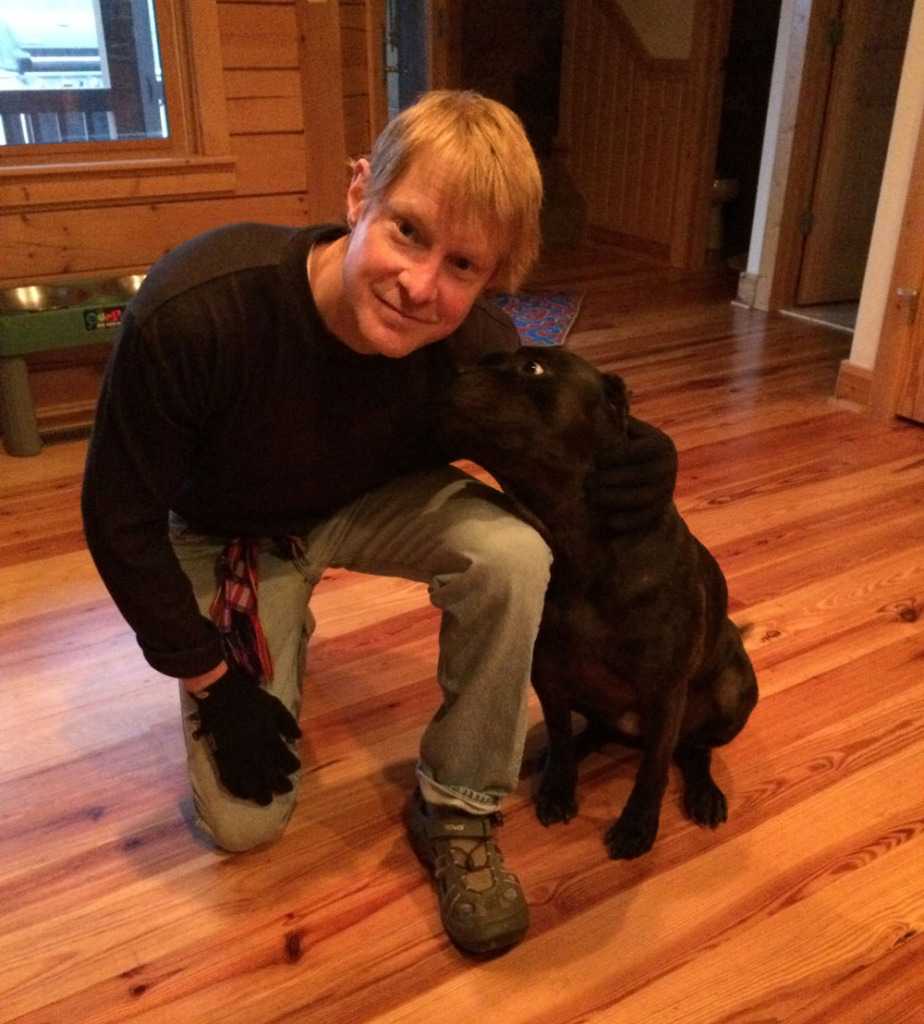WARRENTON, Va. — Think of the most physically demanding 50 days of your life. Maybe the final seven weeks of training leading up to a marathon? If you spent time in the military, maybe your first seven weeks of basic?
Now imagine racing across the barren peaks of the Himalayas, as far as your body can stand each day. Imagine doing that for 49 days, 6 hours and 8 minutes, shattering the world record for the fastest time across Nepal, the highest elevated country in the world. For Fairfax native and lifelong Virginian Sean Burch, that was just last year’s challenge.
“I love Mother Nature, because it’s the one place you can be that doesn’t judge you,” says Burch in a conversation at his home outside Warrenton after his most recent expedition, ascending 23 peaks across Mongolia. “Especially being from D.C., everyone judges you; especially now, with what I do.”
What Burch does, exactly, is a matter of perspective. He owns a half-dozen world records, all related to mountaineering. But more generally, what Burch does is set out to test himself and – by proxy – the human body to the limit.
It wasn’t always this way. He was once just another Northern Virginian 20-something, with a house and a girlfriend and even a job that afforded him the chance to travel the world a bit.
“I was reading about mountaineering,” says Burch. “But that’s what I was doing – reading about it.”
All that changed when his grandfather, a man who had seemed to Burch to have a full life, told his grandson on his death bed not to waste his short time on Earth, not to live with regret.
“Live your life,” he says, and it’s as much of a mantra for himself as a command to anyone else. “Live it. Live. Don’t just exist.”
Burch decided to take on the biggest challenge of them all: climbing Mount Everest. His friends and family thought he was nuts. Only adding to that perception was his decision to do so alone, a precedent that would come to define everything about the new Sean Burch.
“Oh yeah, I always go out on my own,” he says. “My thing is, you know, I take the risk because I don’t mind if something happens and I die.”
This may sound like a childish thing for an “early forty-something” — as Burch self-describes — to say; possibly even selfish. But his next sentence sheds a different light on the sentiment.
“Then yeah, [dying] sucks, but I don’t want to take anybody with me,” he explains.
Burch has had many close calls, including one on that very first ascent of Everest in 2003. The last climber on the mountain, he was still making his descent well after nightfall, around 7 p.m. At one point, exhausted, he sat down, and realized he had a decision to make – find a way to get down the mountain right then, or die. The thing that kept him going was his desire to have a family, specifically a son.
He has that now, a 10-year-old boy. He has him half the time when he’s home, out at his rural house, down a pothole-laden road that narrows to a single lane before finally reaching his spread among the leafless trees, banked in the fog. It feels about as remote as you can live and still be within spitting distance of civilization.

It’s hard to imagine Sean Burch, the 9-to-5er. With a stringy tussle of orange hair and wild green eyes, tall and slender, he looks the part of an outdoorsman. He has a pitbull mix, a gentle giant named Khumbu, after the famous Everest icefall that killed 16 climbers earlier this year. There are pieces of his life like this, intrinsically tied to the mountain, like his belt, actually a Tibetan tablecloth repurposed as it loops through his faded jeans. But ascending Everest also left him with one question he finds himself continually striving to answer: what’s next?
This year, what was next included a trip across Mongolia, in the freezing month of November. The temperatures were so consistently low – with lows averaging between -5 and -30 degrees Fahrenheit – that Burch wore his entire collection of clothes for the full expedition, never once changing. It was still so cold he couldn’t sweat.
“I just love the cold so much,” he explains. “I love it. It just invigorates me so much.”
While that may be so, it comes with consequences. Burch says he couldn’t feel his fingers for the last 10-15 days of the expedition, and had to keep them constantly moving to keep them functional. Now, back at home for a couple of weeks, he still can’t feel his toes. Meanwhile, his hands are a bit the worse for wear.
“They’re so sensitive now, since the expedition,” he says. “If you want to see…”
As he pulls the glove off his right hand, his fingertips are a mess of blisters and peeling skin. Then he takes his left glove off to reveal a black patch to the inside of the nail on his ring finger, remarking rather non-chalantly that he might lose a chunk of it. Nevertheless, he can’t stand the heat of the desert, so he figures he’ll continue to take his adventures in cold weather locales.
“If I stop doing what I love, I’m dead anyways,” he says.
Burch has been able to expand what he loves into a small personal empire over the past few years. In addition to his adventures, he is now also an author, a fitness guru, a motivational speaker and a television star. His Team Endurance team won the second season of the Ultimate Survival Alaska television show that aired on National Geographic Channel earlier this year.
But like everything else in his life, if he returns to television, he wants to do it his way, not as a part of a team in a structured competition. He is in development talks about just such a show. It’s a way of bringing what he has learned about himself back down to lessons for everyday life.
“I learn more about myself as a human being,” he says of his adventures. “What am I made of? Can I still do what I’ve always wanted to do? It’s a great way to learn about yourself, to push yourself. Because that’s the only way you’re going to learn in life, with everyone, whatever it is. Whether it’s climbing, or whether it’s taking a new job, or whether it’s moving to a different city, it’s all scary stuff.”
That’s where his lessons live in the practical world. It’s why, even though he escapes in solitude at least once a year for the next adventure, he finds himself back in meetings, even considering moving closer to the city to help make his business dealings easier. It’s the tug of war that seems to define him.
“To me, that’s one way to be with Mother Nature,” Burch explains. “It treats everyone the same. And that’s why I love it – I can finally just be myself.”
Being himself means not only being alone, but constantly pushing, searching for the next edge of what is possible. But Burch doesn’t want to spend all day talking about it.
“In this day and age, everyone’s just talk,” he says. “And I can’t stand that. I love action. You can talk anything you want to, but at the end of the day, it’s about just doing it.”
Follow @WTOP and @WTOPSports on Twitter and WTOP on Facebook.





